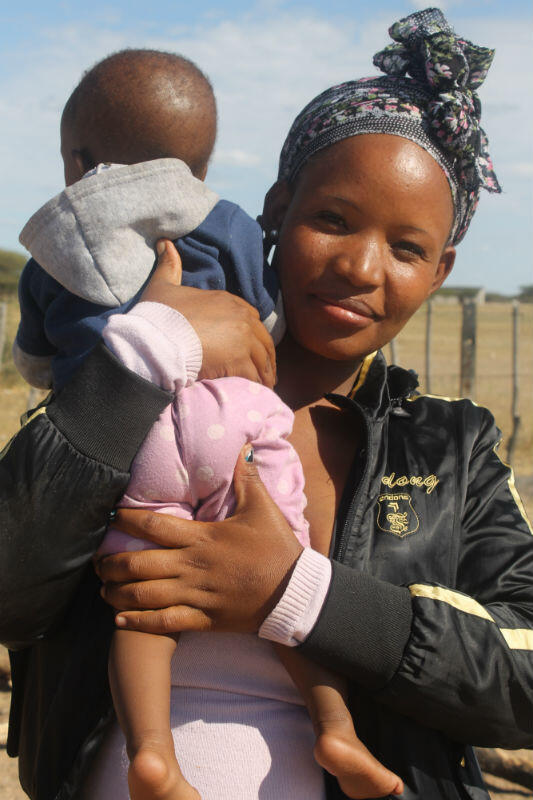Otse, Botswana: Rose Matuulane is a 24 year old, mother of two living in Otse village, in Botswana. Otse is a remote village 180 km from the capital city Gaborone. She is the fourth born child in a family of 8 children, four females and four males. She didn’t do well in her junior secondary school exams eight years ago and has not worked or gone back to school since. She fell pregnant at a young age of 19 years, just like many girls in her village who fall pregnant in their teens.
Accessing antenatal care was a challenge. A nurse from Shoshong, 84 kilometres away provided services every week. If the nurse did not come, Rose travelled the 84 kilometres to reach antenatal care services at the Shoshong Clinic. These trips required travelling to Shoshong the day before so she could sleep near the clinic, and stay in a queue for hours. But if she needed a family planning consultation, cancer screening or HIV testing and counselling she would have to come back another day and start all over again in another service.
“Initially pregnant women were seen on specific days, maybe Wednesday. This was characterized by long queues, and other services suffered. It also meant I had to be at the clinic very early in the morning, and if I wanted a different service I would have to return again on a different day. There was also a lot of stigma as there were different queues for different services, we could easily identify those who were HIV positive,” Rose remarked.
Service delivery transformed
Since the introduction of the SRH/HIV linkages project at the Otse Health Post in 2011 long queues and regular overnight trips to Shoshong are now a thing of the past for Rose and other pregnant women in Otse. Rose's experience at the health post was worlds apart from her first pregnancy. During her second pregnacy, Rose was tested for HIV and cervical cancer, all done by one nurse in one room. While health officers take a bit longer with clients, both clients and service providers are happy with the variety of services the women get at the facilities. To them this is putting the sexual and reproductive health of the women at the core of service delivery.
For Rose, integration meant being able to access consultations where she could get both her post-natal care and family planning methods, which consequently decreased her time on the road, in the queues and away from her two children. “During my second pregnancy I could get HIV testing and counselling, cancer screening and family planning all in one visit,” said Rose.
The Otse Health Post uses a one-stop shop model, where services are provided in the same room by one health care provider. “This integrated approach has worked really well” said Gertrude Ganetsang, Nurse In-charge at the health post. According to Ganetsang, when a client receives an integrated package of services they don’t return as often as they used to, leading to decongestion in the health facility, and improved client satisfaction.
Integrating these services is an important strategy to prevent not only unintended pregnancies, but also HIV and other sexually transmitted infections. It also minimizes missed opportunities for addressing the sexual reproductive health needs of people living with HIV. With an HIV prevalence of 23% in 15-49 year olds, integrating HIV and sexual reproductive is a major contribution in the fight against HIV. Botswana is among the seven countries in the East and Southern Africa Region piloting the SRH/HIV linkages project. The project is a partnership between the Ministry of Health, UNFPA and UNAIDS. The project is financially supported by the European Union, the Swedish and Norwegian Development Cooperation agencies. The government of Botswana is first among the pilot countries to start scaling up the approach nationwide.


